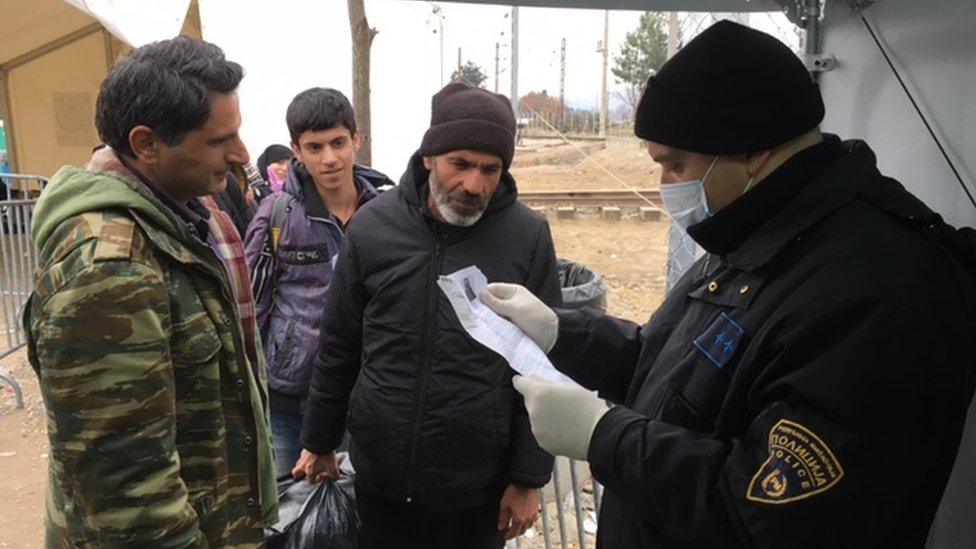Migrant crisis: Hungary to hold referendum on EU quota plan
- Published
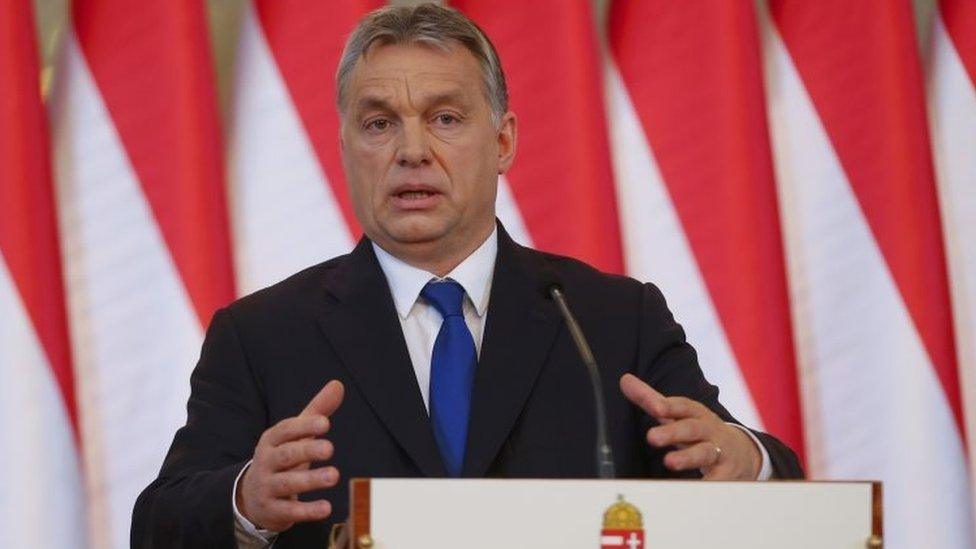
Viktor Orban said the referendum would be held in response to "public sentiment" in Hungary
Hungary will hold a referendum on whether to accept mandatory EU quotas for relocating migrants, Prime Minister Viktor Orban has announced.
Without disclosing the date for the poll, he stressed that the quotas "could redraw Europe's cultural and religious identity".
In September, the EU agreed to relocate an additional 120,000 migrants across the continent - a move Hungary opposed.
Under the plan, Hungary will now have to take in a share of migrants.
More than one million people arrived in the EU in 2015, making it Europe's worst refugee crisis since World War Two.
In separate developments on Wednesday:
A special flight from Germany carrying 125 deported Afghans arrives in Kabul, as Germany takes steps to reduce the number of people seeking asylum
Austrian Interior Minister Johanna Mikl-Leitner says cutting the flow of migrants is a "question of survival" for the EU at a summit with ministers from western Balkan nations
Greece - which was excluded from the talks - issues a formal diplomatic complaint, calling the meeting an "unfriendly action"
Belgium has detained 80 migrants on the French border since imposing controls on Monday evening, officials say. Many of the migrants are thought to have come the "Jungle" camp in Calais, which is facing partial demolition
'Abuse of power'
Speaking in Budapest, Mr Orban said: "The government believes the decision about the mandatory relocation quota cannot be taken away from the Hungarian parliament."
"We think that introducing resettlement quotas for migrants without the backing of the people equals an abuse of power."

Analysis: BBC's Nick Thorpe in Budapest
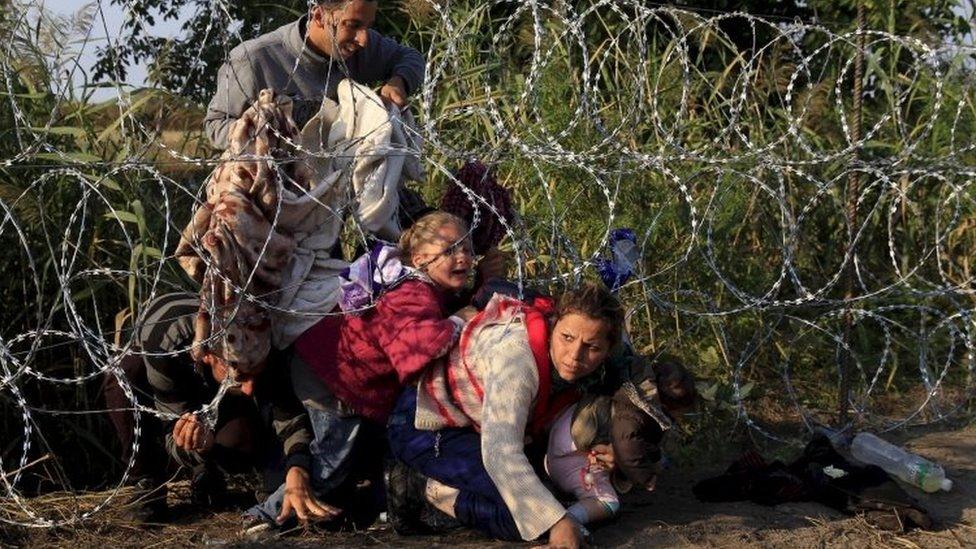
Last year, Hungary built a razor-wire fence on its southern border to try to reduce the flow of migrants
The Hungarian referendum sets out to hammer another nail in the coffin of a common European refugee policy. Viktor Orban's government wants to keep everyone out, and is angling for a massive show of ballots from the public to back its argument.
He will almost certainly get it. Hungarians have been sensitised to the issue by the transit of nearly 400,000 migrants last year, before the erection of the fence on the borders with Serbia and Croatia.
Referring to last week's summit on migration in Brussels, Mr Orban told parliament on Monday that "for the first time, the Hungarian approach was adopted for the whole of Europe. The main priority was finally declared to be: stopping the migrants".
He defined the Hungarian approach as "control, identification, interception, turning back".

The ballot will ask Hungarian voters: "Do you want the EU to prescribe the mandatory relocation of non-Hungarian citizens to Hungary without the approval of the Hungarian parliament?"
The referendum is expected to be held in the autumn, subject to parliamentary approval.
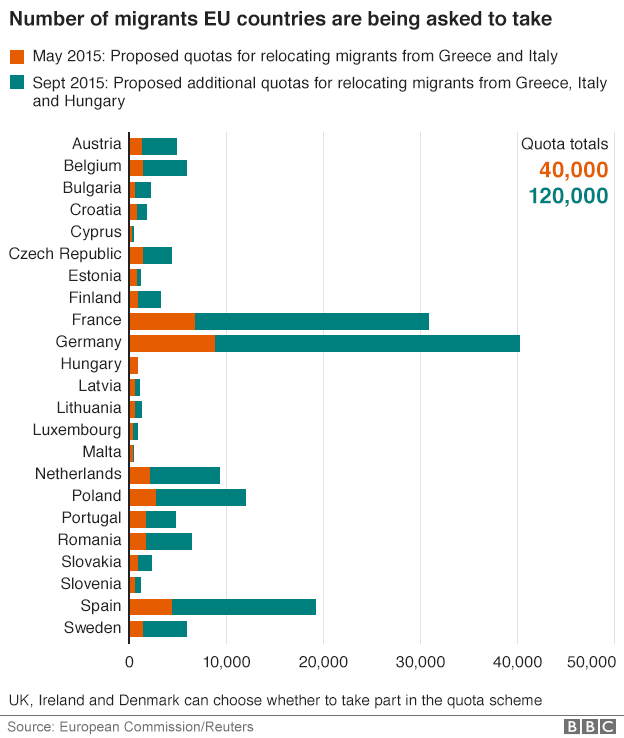
Mr Orban's right-wing government - together with several central European nations - voted against the mandatory quotas back in September. Despite this, the plan was still approved.
Under the scheme, migrants will be moved from Italy, Greece and Hungary to other EU countries.
But Hungary will have to take about 1,000 migrants. Had Budapest not opposed the scheme, it would have been exempt.
Hungary has recently seen a huge influx of migrants trying to cross the country en route to wealthier EU nations such as Germany.
Last year, the Hungarian authorities built a razor-wire fence on its borders with Serbia and Croatia to try to limit the flow of migrants.

- Published22 February 2016
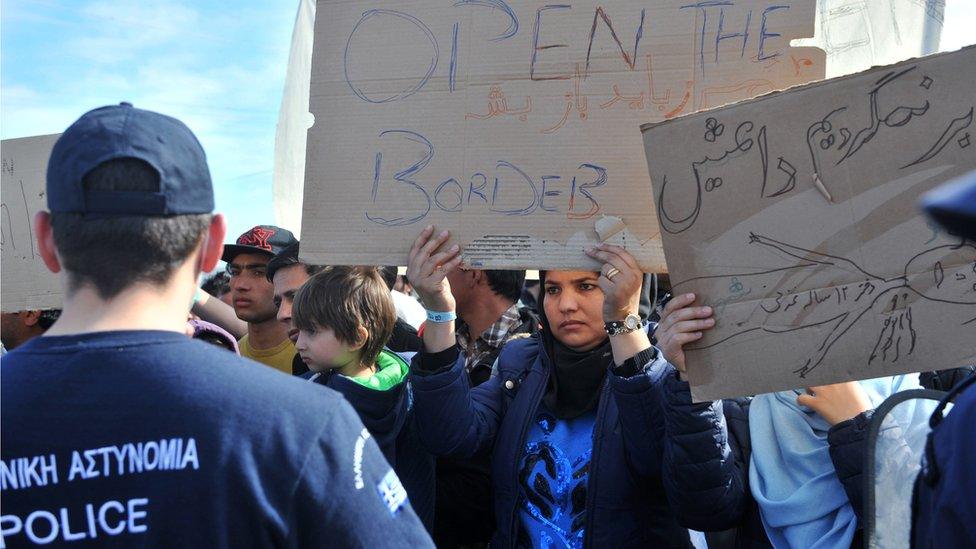
- Published12 February 2016
